When I was a kid my siblings and I went to church every Sunday with our mother. My father is an atheist. A very scientific, intelligent and deep thinking one, I should mention. So he stayed home. How my parents managed to stay happily married in spite of this, is a question I’ve never really thought to ask. We never prayed before meals, and talk of god wasn’t really part of daily home life. Nevertheless, every Sunday we listened to bible stories and I even accompanied the congregation on piano as they sang their solemn, ancient, hymns. I mostly enjoyed going to church. I liked the lessons. Lessons of humility and kindness and gratitude. I liked to play the piano. Until I grew old enough to really begin to question things, this was a very comforting part of my life.
Something else I did regularly, was pray. I prayed a lot. I felt very misunderstood most of my childhood and teenage years, so praying made me feel less alone. I also believed in sin. And heaven and hell. So sex before marriage was out of the question.
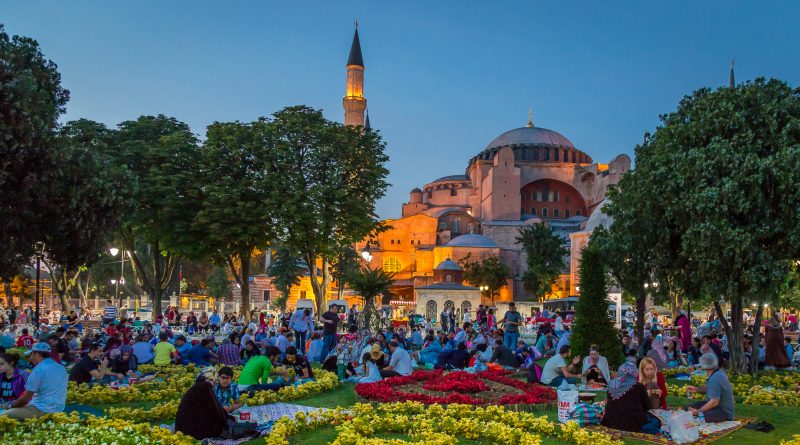
A serene scene outside a mosque in Turkey, taken by my open-minded, atheist Dad.
Then, around fourteen or fifteen, it dawned on me that my grandparents (my father’s parents) were not much longer destined for this world, and that they, as atheists, were heading for hell. I hadn’t quite clicked at that point that my Dad was too. This was a devastating thought. I wanted to plead with them to start coming to church. I was genuinely lying awake at night worrying for their souls. That was probably the first time cracks began to appear in my faith. I simply could not accept that this was true.
Then other thoughts began to surface, which I simply couldn’t reconcile. All the things we were told were not okay to do or be, things that were sinful, meant that perfectly wonderful people were being treated as outcasts, excluded from the church and also headed for hell. Although at that time I didn’t knowingly have any LGBTQIA friends, I’ve always been deeply empathetic, and the idea that those people were essentially considered evil for something I was quite sure they had no choice about, was absolutely heartbreaking.
Meanwhile, these same good Christian folk were happily killing and devouring innocent animals. Something which, to me, had never ever sat well in my bones and somehow felt hypocritical. So, by around seventeen, I wanted to get out. Thankfully, my youth group leader had a gay son, and she was going through the same thing as me. Very shortly after I announced that I was done with church, she popped by our house and I discovered that she too had decided to leave the church. It gave me so much comfort to know that this incredibly kind, wise and loving lady felt exactly the same way I did.
This is not to say it was an easy choice by any means. Although both rationally and in my heart I felt that the teachings of my church could not possibly be right, I didn’t know how to be in the world without prayer. And I didn’t know that there were other options. I felt as though I was choosing between believing in something or nothing. For a while I tried to go with nothing. But I couldn’t stop praying. I continued to pray to god until I was about 20-years-old, even though I no longer wanted anything to do with the church. Then, as I experienced more of life and met people with a lot of different beliefs I also came to think that even the concept of god that I’d been raised with wasn’t quite okay.
If you’ve ever read 1984 or The Handmaid’s Tale, you’ll know well the ways in which language is used to manipulate. Church is precisely like this. You repeat the same expressions again and again: Amen. Praise god. Forgive us for our sins. Word of god. Blessed be the fruit. For me, even the word “god” is language of manipulation, control and brainwashing. It conjures up immediate images – masculine for a start…
Then there is the music. As a musician I’m very conscious of the power music has to move and affect us. In traditional protestant and catholic churches they use very old hymns which remind us of the seriousness of life. They make us feel both guilty for our sins and grateful to be alive. The songs extract emotions to remind us that we are but humble little servants of almighty god. In modern churches and gospel churches we hear rock bands and choirs… It’s uplifting, it makes us elated, joyful, full of gratitude. Nothing wrong with that for sure. And I’ve now come to understand that the energy which flows through music is indeed a force of “holy spirit”. However, in the context of church, with endorphins flowing through us, we attribute the feelings to the god that particular religion has told us to, and then we’re quite often asked to drop money into a plate.
Music is an extremely effective tool for manipulation, which is precisely why it’s used in advertising and movies.
So there I was at 21-years-old with no god and no one to pray to. I felt alone and lost. So I started to search.
What I’m extremely grateful for is that I grew up believing something. Whether or not it was the right thing for adult me, didn’t matter. Deep down I knew that life wasn’t empty and meaningless and random, I just didn’t have a good enough explanation yet. But I definitely wanted one. So I started reading. The first book that changed my life was “The Road Less Traveled” by M. Scott Peck. Another one was “Tuesdays with Morrie” by Mitch Albom. Not wanting to live an average life, but one of exploration and personal growth, I took a great leap into the unknown and moved to Japan.
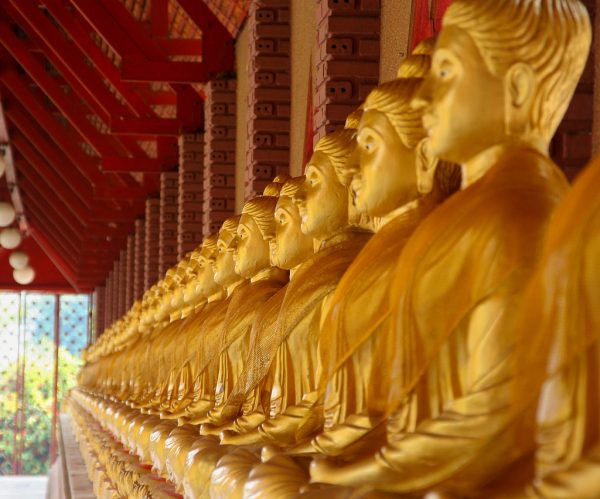
Japan is a Buddhist country. Though interestingly, much like many Christians, most Japanese aren’t actually practicing Buddhists. They go to the shrines and temples and practice traditions in the same way many Christians only go to church on Christmas eve. However, I very much liked these traditions. They resonated with me and felt more genuine that any of my Christian ones had. There was also a sense of freedom about it. It didn’t seem manipulative and there was no sense of guilt or exclusion. No one belongs to anyone else and there is no singular entity to which we owe it all. So began my exploration into Buddhism.
Buddhism is not a religion. It is more a practice. It’s about compassion towards all living beings, inner peace, and control over ones reactions and emotions. To me, everything about it made perfect sense. Except one thing: sexism. In some of the ancient buddhist scriptures it is said that women cannot become enlightened and must be reborn as a man. Apparently, these days most buddhist women believe that the sexism in Buddhism is simply due to the influence of the sexist Asian cultures in which it is practiced. And in fact, I’ve never seen any religion in which sexism is not rife, Christianity included. The reasons for that are too deep to go into. Needless to say, so far on my journey I’ve not found any particular religion that I would ever agree to practicing singularly.
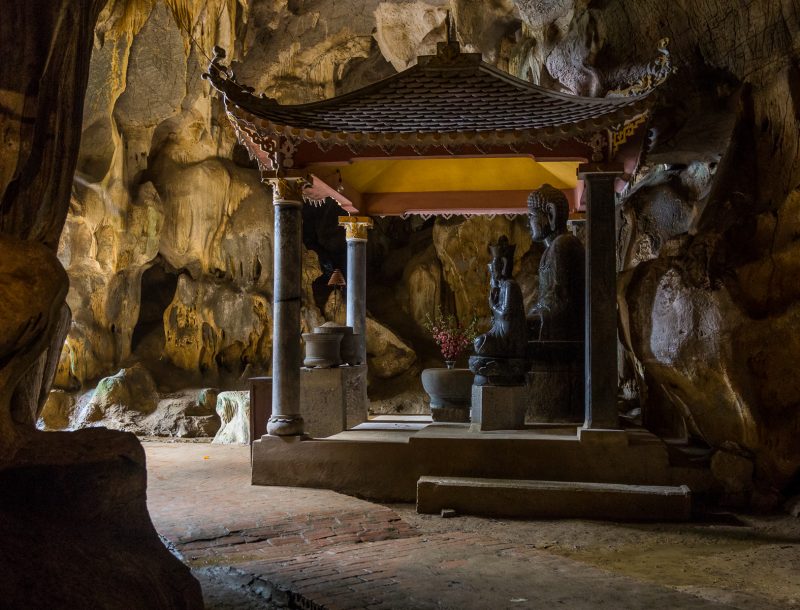
Chùa bích động (Bich Dong Pagoda) complex, Tam Coc, near Ninh Bin, Vietnam
I’m not sure exactly when I finally found my inner peace. I believe it took quite a while, and quite a lot of looking in all the wrong places. It sort of crept up upon me. Most of my twenties were spent searching for answers and meaning. What certainly always stayed with me was music. So I suppose that was my spiritual practice. I definitely didn’t have the patience for yoga, or meditation. I felt that many of my favourite songwriters, like Ani Difranco, were wise, and I learned from their words. Not that I ever discontinued my personal discovery either. I loved Deepak Chopra and various other popular spiritual gurus. Every time I went through a period of suffering because of a breakup or financial struggles I read extracts from religious texts like the Hindu, Bhagavad Gita, and I had long, curious conversations with people from different cultures and religions.
It wasn’t until my thirties that my inner growth really started to sky-rocket. I had a very intense relationship with a hyper intellectual and philosophical guy. He taught me about ego. His very spiritual (actually Catholic) mother, who also practiced meditation, gave me an Eckhart Tolle book. Tolle basically said precisely what I had always known but didn’t have the words to express. He’d also done the deeper research that I hadn’t. He explained life in a way that finally made perfect sense to me, without exception. And I suppose I was in precisely the right state to totally get it. He also explained how all the world’s religions had exactly the same thing at their core – what god really was. They’d chosen different words to describe things and over time humans had distorted and reinterpreted the words and meanings of the stories, but in essence there was indeed one truth.
From that point on I have delved into the teachings of every spiritual/philosophical teacher I can find. Alan Watts and Marianne Williamson being a couple of my favourites. I listen to all spiritual teachers with non-judgement. That is to say, I don’t decide whether I agreed or disagree with them, I just listen. Some resonate more than others. And that’s it. And I’ve found that they too basically all say the same things in different words: connectivity, true-self, dissolving of/management of ego, acceptance, non-resistance, non-judgement, consciousness, meditation, unconditional love etc etc…
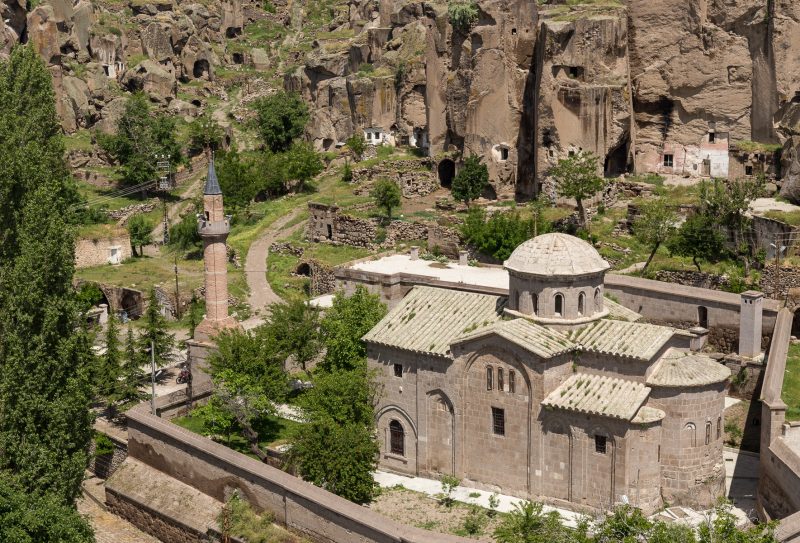
The old and the ancient. St Gregorios Theologos church was built in 395 AD for the founder of the orthodox church St Gregory. The surrounding cave dwellings were occupied at least 1000 years earlier. Another photo taken by my Dad.
So, what I now ultimately believe is, at its absolute essence, the same thing as Christianity is supposed to teach, but that is also the same thing as every other religion. And at the same time, I want absolutely nothing to do with the language or rules or practices of any one religion. I believe that religion and language (ALL of them) were created by human beings, not “god”, even if the messages which are attempting to be passed on have indeed come from the forces of the universe. And to me, this is also glaringly obvious. If something in your deepest heart and soul feels wrong and yet your religion tells you it is right, there is something wrong with that religion. One example of this, for me, is that most religions teach that they are the one true religion with the one true god. Those who do not practice and believe are sinners who will go to hell, or will not reach enlightenment. Look deep inside…. how is that fundamental premise of exclusion in itself a loving and compassionate thing to believe? Isn’t that very thought creating division and hatred? Therefore, how can it possibly be true? We all exist, we are all doing our best with what we know and have learned, based on our experiences and the situations we were born into. No one deserves eternal damnation.
What I have reached now is a state of deep knowing. One which is beyond words. Beyond the word “belief” even. It is accessed through meditation. It’s an inward practice. But inward is also outward. Time and space are illusions anyway. It makes perfect sense according to science, as we have never discovered the edges of the universe nor the ends of an atom. Nor do we know precisely what black matter actually is. I’m quite sure that this knowing is accessible to everyone, and non-exclusive. Many people who practice a religion feel it too. And, I guess many people who practice a religion also DON’T feel it.
This deeper understanding of true self and the interconnectedness of all living beings has absolutely nothing to do with religion. It does however require practice and awareness. Although spirituality, meditation and mindfulness have become a kind of hipster trend lately, and I’m sure a lot of people are in it for the funky outfits and dream-catchers, those who truly get it and practice are indeed doing what is best for themselves and our planet.
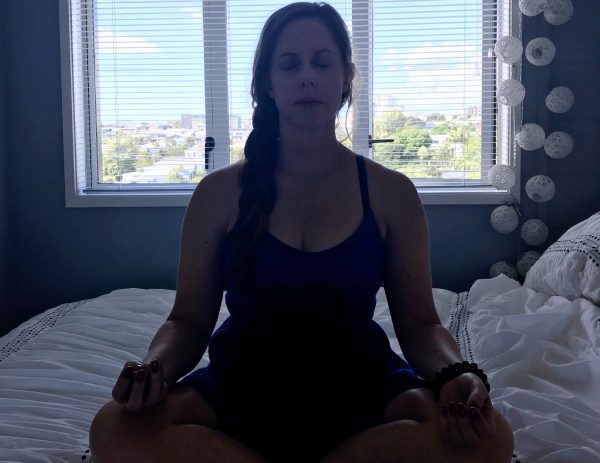
My body is quite literally my temple now. No need to go anywhere. Accessible anyplace anytime and even with eyes wide open.
Throughout history religion has divided us. Religions have caused wars and centuries of conflict and suffering. They are sexist, prejudice and inherently deeply flawed due to thousands of years of human interference and interpretation. Religion has contributed far more to the destruction of our planet than it has its growth. I say this with absolute unconditional love for all those who believe that their religion is still the way. I truly understand it. However, I know that practicing unconditional love and acceptance of all other living beings is the way forward for our planet.
I encourage everyone to try meditation, or prayer without the limitations of ritualistic, indoctrinated language. This, for me, has been infinitely more helpful and rewarding than going to church and praying to a god for forgiveness ever was.
And I now take great comfort in knowing that my grandmother is not burning in hell, but has in fact continued in a state of pure oneness. I know she is always close by.


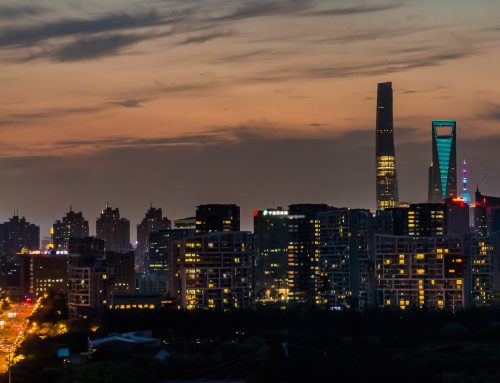
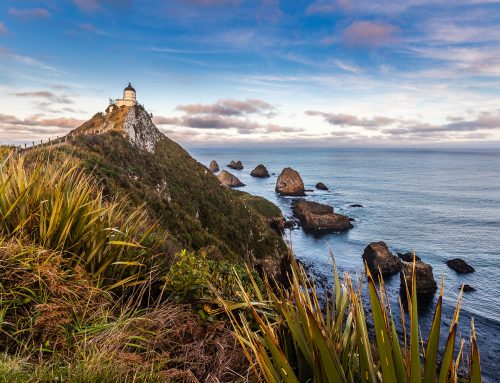
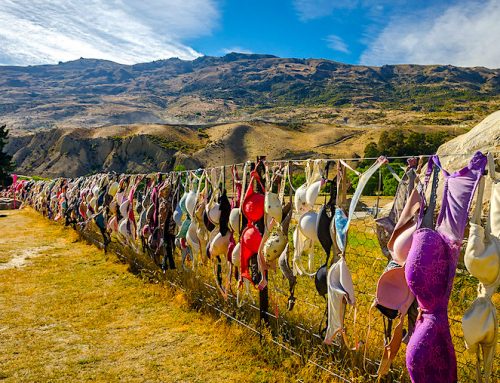
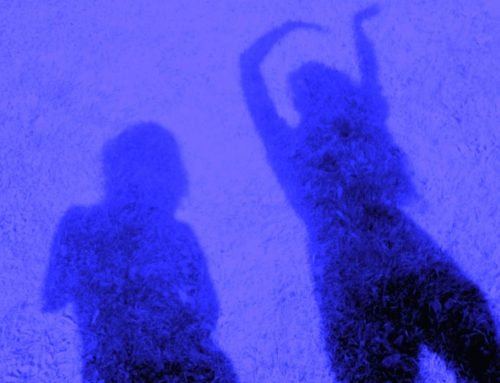
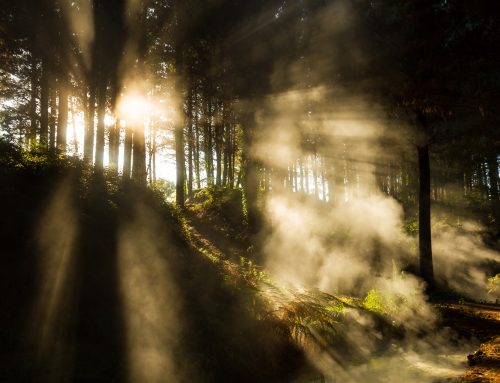
Leave A Comment